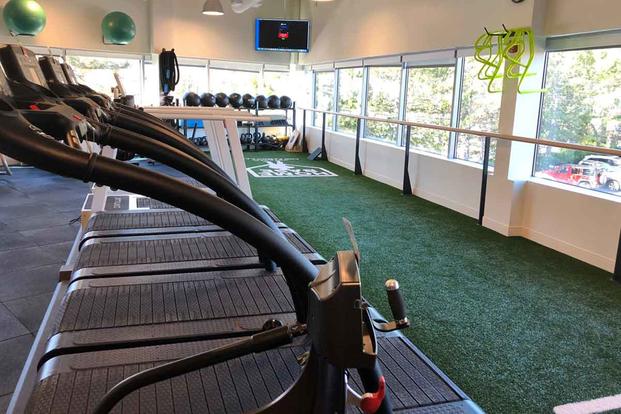Every year, millions of people suffer brain injuries. Most are classified as either concussions, brain injuries or traumatic brain injuries with similar symptoms that vary in severity. Recent research suggests that getting active more quickly after injury can help with recovery.
Here is an email from a guardsman and police officer who experienced a brain injury on duty several years ago and is making progress with recovery.
Hi Stew, My name is Carl and I really enjoy reading your fitness articles. I was a member of the National Guard and a local police officer. Fifteen years ago, I got a traumatic brain injury (TBI). Among other things, it was almost a year before I could walk around the block without getting really tired from cognitive fatigue. I’m 53 and much better. I have been off all my meds for many years now. In February, I put it in my head that I was going to meet Ranger PT standards. It’s harder than I thought, but I’m getting there.
My question is: Is there anything you're aware of that helps with cognitive fatigue? I try to push myself, but it’s hard for me to fight through it sometimes.
Carl, I am glad you are feeling better and your goals are going to be a fun challenge for you. This is going above my pay grade, so my advice is to discuss your question thoroughly with your doctor and physical therapist to help the process of getting back into training again after a concussion or traumatic brain injury. There have been many studies in the past decade about the importance of adding exercise to the recovery process of TBI. Just make sure what you decide is right for you.
It appears the most helpful type of exercise for people in the recovery stage is aerobic activity. At first, this should be safe exercise like a stationary bike, rowing or an elliptical machine versus actually riding a bike, mainly to avoid accidents. Walking and swimming are also acceptable forms of cardio activity, and you can build up to running as well. It just may take some time before running can be done without any effects.
On the website CognitiveFX, they discuss in detail the importance of exercise to recovery from brain injuries and concussions. From general physical conditioning, healthy blood screening scores and helping brain function, exercise gives the brain the oxygen it needs to function properly.
“Studies show that every time you exercise, the post-exercise cognitive boost continues for hours after exercise and is an important factor in healing from brain trauma and in improving cognitive abilities," according to the website. "In a nutshell, you need to exercise so that your brain can obtain and use these chemicals to heal.”
As with any logical progression into exercise, you may be able to do only small sets of activity that last 5-10 minutes. That is fine. Soon, your ability to double and triple that time will be here as you steadily practice getting back to the basics of physical fitness.
Although you may not want to treat yourself like a beginner, the benefits will be many if you have patience. You will benefit not only in how you feel during and after exercise, but how recovery from previous injuries and current health scores will continue to improve. Before too long, you will push yourself to more challenging goals.
Calisthenics, non-impact cardio, yoga and walking are all options as you get started again. Once again, check with the doctor as your plan always should depend on the severity of the injury.
But research shows more medical professionals are pushing physical activity quickly after the injury (depending on severity) as a significant part of the treatment. Continuing coordination, concentration, communication skills, balance, flexibility and mobility training is also a must and can be part of a warmup and cooldown from more physically challenging activities.
Research:
Cognitivefxusa.com: Over a decade of peer reviewed publications on head injury recovery.
Stew Smith is a former Navy SEAL and fitness author certified as a Strength and Conditioning Specialist (CSCS) with the National Strength and Conditioning Association. Visit his Fitness eBook store if you’re looking to start a workout program to create a healthy lifestyle. Send your fitness questions to stew@stewsmith.com.
Want to Learn More About Military Life?
Whether you're thinking of joining the military, looking for fitness and basic training tips, or keeping up with military life and benefits, Military.com has you covered. Subscribe to Military.com to have military news, updates and resources delivered directly to your inbox.
















